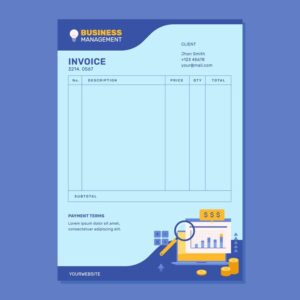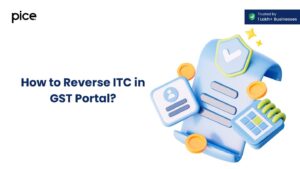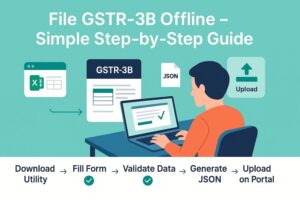GST Invoice Terms and Conditions in India
- 13 Dec 24
- 8 mins
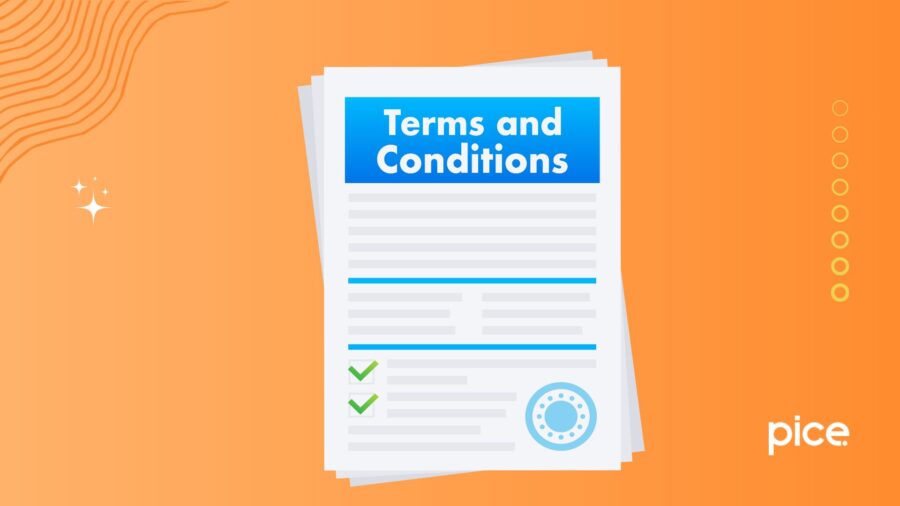
GST Invoice Terms and Conditions in India
Key Takeaways
- Clear payment terms in invoices ensure timely payments and build trust.
- Refund and warranty policies in invoices reduce disputes and losses.
- GST-compliant invoices ensure tax and legal adherence in India.
- Late payment penalties encourage prompt settlements and compensate delays.
- Jurisdiction terms and E & O.E. clauses offer legal protection to businesses.
Invoicing is an essential component of every business's financial aspect. It not only ensures payment collection but also maintains transparency. Additionally, it helps in avoiding losses due to disputes. It is important for every Indian business to define payment terms and conditions clearly in the agreement to reduce delays and build trust with customers.
In this blog, we will discuss the intricacies of invoices under GST, GST invoice terms and conditions in India and other relevant details.
What Are Invoice Terms and Conditions?
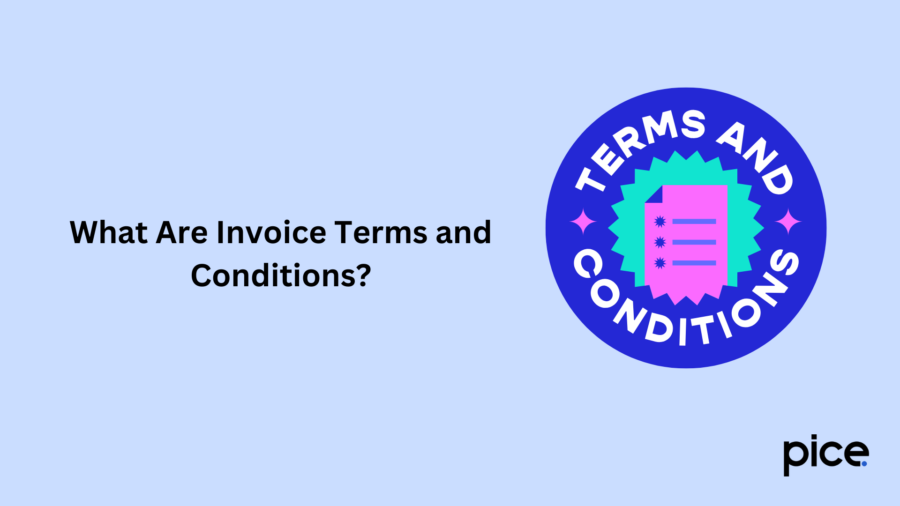
Invoice terms and conditions are a set of legally binding agreements between buyer and a registered seller. The invoice terms include the nature of the goods which were delivered, the time of delivery and when the payment is pending.
These terms and conditions help to manage legal liability and customer expectations and reduce dispute risks. However, one must note that the time limit to issue an invoice varies.
Invoice Payment Terms and Conditions Explained
The terms and conditions of invoice payments serve as a foundation for any transactions. Let us discuss them in detail.
1. Payment Terms and Conditions
Payment terms are legal agreements which outline the obligations of a service provider and a buyer. Here are some typical invoice terms:
- Invoice date
- Transaction amount
- The time frame required to be met by your clients
- Billing address and method
Here is a list of invoice payment terms or abbreviations applicable in the Indian markets:
- CIA (Cash in Advance): As the name suggests, it requires the potential customer to make a full payment for goods before it is provided to you.
- CND (Cash Next Delivery): It is applicable if the customer is supposed to receive multiple deliveries. CND deals with the amount he is entitled to pay before the next date of delivery.
- CWO (Cash with Order): Under this head, the customer is entitled to pay during the submission of the order.
- CBS (Cash Before Shipment): The customer needs to pay the full or partial amount in advance.
- COD (Cash on Delivery): In this case, the customer makes the payment only on delivery.
- 15 MFI (15th of the Month Following the Invoice): Under this head, the customer needs to make the payment of the goods or services within the 15th of the month which follows the invoice issue.
- 30 MFI (30th of the Month Following the Invoice): The customer needs to make the payment of delivered goods or services before the 30th of the month which follows the issue of the invoice.
- Net 7: Net 7 allows a customer 7 days from the invoice date to pay for the goods or services.
- Net 30: The payment from the customer needs to be within 30 days after the tax invoice date.
- Net 90: The customer is allowed 90 days from the invoice date to pay for the goods and services.
2. Warranty Terms and Conditions
Multiple businesses offer warranties on their goods or services. Warranty terms in an invoice provide information to the buyer about the duration and conditions of the warranty. It specifies what is covered under the warranty, how to claim the warranty, and more. A warranty document usually consists of the following points:
- Duration or period of warranty
- Warranty issuer’s contact details
- Details of the period who is offering the warranty
- Nature of the warranty
3. Refund/Returns Terms
Refund or return terms are the conditions that allow a buyer to return a product or receive a refund. Therefore, it is essential to know the conditions under which a return or refund is acceptable. For instance, some retailers require the goods to remain in the same condition as they were during packaging. Some types of refund and return policies are:
- Store return policy
- Shipping and return policy
- Returns and exchange policy
Along with garnering customers, a well-drafted return policy also helps a business avoid loss from unnecessary refunds or returns. Here are some of the key points that the invoice terms and conditions should include:
- Charges are applicable on replacements and refunds
- Conditions for a refund or replacement
- Duration within which you can issue a refund or replacement
- Actions which can be taken if the goods are found damaged or tarnished
4. Late Payment Penalties
To promote timely payments, businesses often levy penalties in cases of late payments. It is important to mention the consequences of such late payments in your agreement. Some of these are:
- It helps in promoting timely payments and reduction of delays.
- It also provides compensation to businesses for the accrued costs concerning delayed payments.
5. Currencies and Payment Forms
If a business deals with cross-border or international transactions, currencies and payment forms are important to avoid confusion. Specification of currency, like USD or EUR, as per the client's location is crucial for businesses detailing internationally. Along with currency, payment forms like cheques, bank transfers and digital wallets need to be mentioned.
6. Jurisdiction Terms
Jurisdiction terms specify the legal framework which governs the transaction. By specifying that legal issues will be resolved in a specific legal jurisdiction, you can avoid expensive and complicated legal proceedings. This is crucial for small businesses that can only afford to deal with disputes in local courts.
7. Good Services Tax (GST) Invoice Requirements
According to Indian laws, a transaction must accompany a bill of sales for goods or services. When a seller considers it suitable for the inclusion of such goods and services, he must send a GST invoice to the registered person, ensuring business tax compliance.
8. E & O.E.
E & O.E. or Errors and Omission Excepted is a phrase used commonly in invoices. It takes care of invoice errors and specifies that the actual seller has the right to amend the invoice with discrepancies. This also protects businesses from unnecessary liabilities for mistakes made in the document.
Importance of Invoice Payment Terms
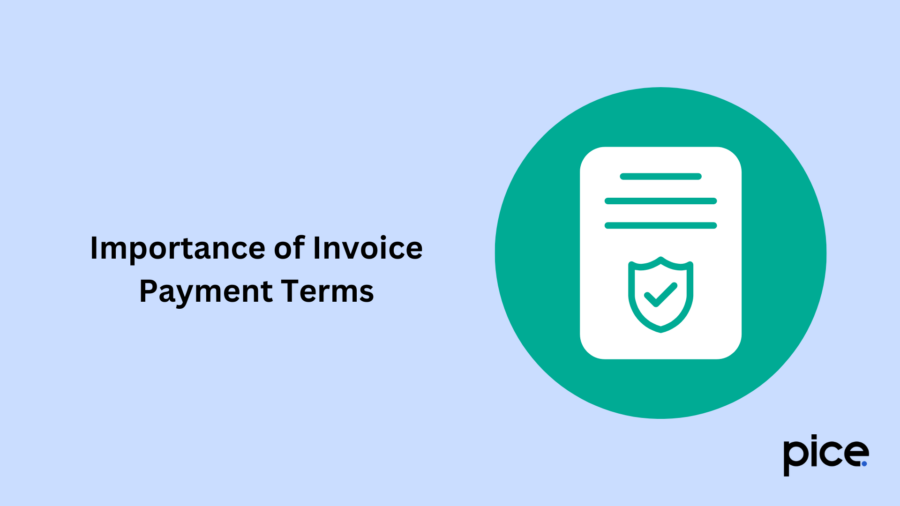
Here are some of the key advantages of invoice payment terms and conditions:
- Clear Communication: Invoice payment terms ensure clear communication between the seller and buyer about payment of goods and services. This, in turn, helps in building trust and increasing transparency.
- Legal Protection: Jurisdiction clauses offer a framework for resolving disputes by offering both parties legal protection.
- Promotes Timely Payments: Delays in invoice issuance often lead to late payments. Specification of due dates in invoices promotes timely payments. This in turn helps in maintaining the financial stability of the business.
Best Practices for Invoice Payment Terms
Here are some of the best practices for invoice payment terms:
- Proper Definition of Terms in a Contract: It is important to include every detail in a contract. This provides a legal status to the contract and helps businesses if the customer defaults. A contract is important as an invoice may not always have a legal standing.
- Secure Invoicing: It is essential that business owners secure their invoice payments by investing in cyber security protocols. This helps businesses and clients to avoid potential financial losses.
Conclusion
GST invoice terms and conditions in India are essential for the financial stability and legal security of your business. By defining terms in the agreement between seller and buyer like due date of payment, refund policies and late fees, Indian businesses can improve cash flow and avoid disputes with clients.
💡If you want to streamline your payment and make GST payments, consider using the PICE App. Explore the PICE App today and take your business to new heights.
 By
By 





